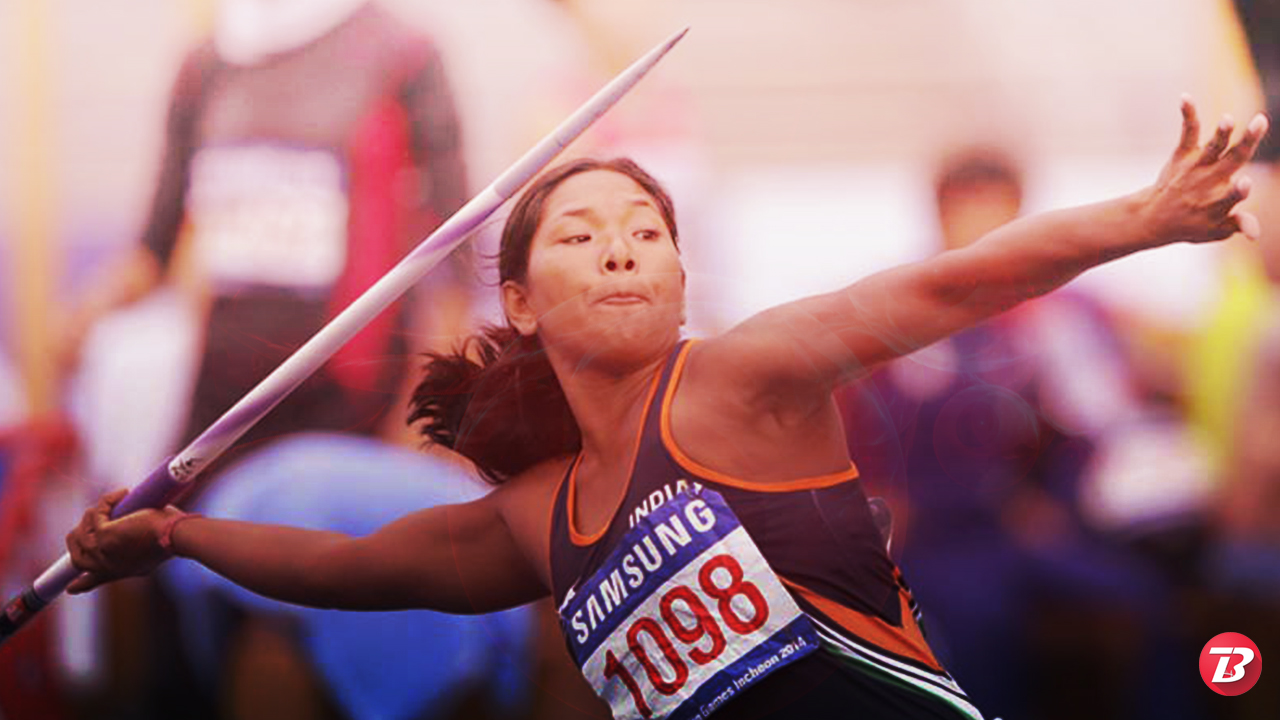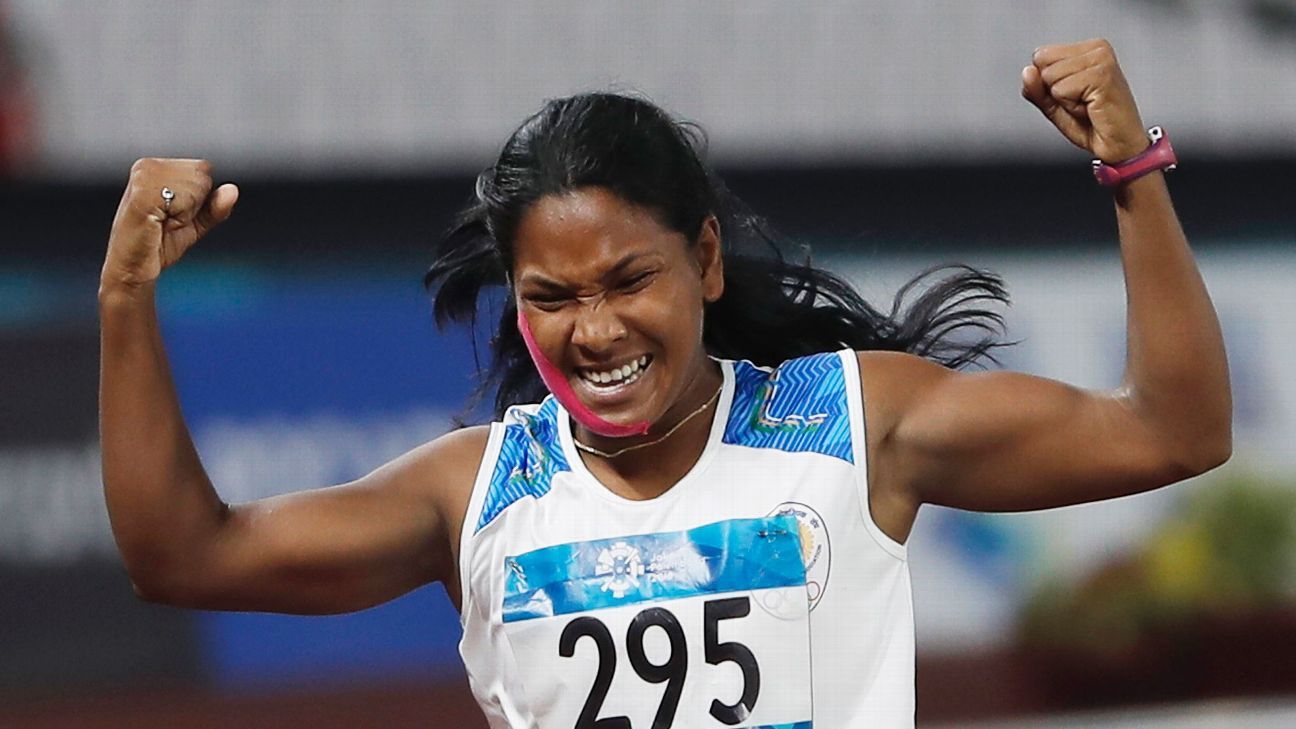Asian Games
Sports allow us all to dream a little: Swapna Barman

A group of people sit clustered together, staring with eagerness at a sporting event on television, scarcely daring to believe the events unfolding on the screen. While some soak in the moment with bated breath, and others shout words of encouragement, a woman breaks down and cries inconsolably. The camera follows her as she hurriedly runs to a courtyard and prostrates herself in devotion before the altar of Goddess Kali.
Since heptathlete Swapna Barman clinched the gold medal in Jakarta, this video of her mother has been doing the rounds on the internet. “I have seen the video and it was a very emotional moment. My mother has been through a lot. But she always believed her daughter was special and it is this belief that in turn allowed me to believe in myself,” says Swapna Barman in an exclusive interview with The Bridge.
“I come from a small town in West Bengal where my sense of achievement was shared by the entire community. I feel that every one of them, through their good wishes and encouragement, has contributed to this win,” she adds.
https://twitter.com/_toxfire/status/1035044785386450946Swapna accepts that it is a special feeling to be the first Indian athlete to win a gold medal in heptathlon in the Asian Games. “The sense of pride is tremendous because this is the highest accolade any athlete can aspire for. And to be the first heptathlete to do so is a wonderful feeling because it brings in recognition for a discipline that puts remarkable demands on an athlete,” she says.
Swapna’s achievement is the story of a copybook sporting fairy tale. Hailing from a modest family background — her father was a rickshaw-puller — the girl from Jalpaiguri in North Bengal, with two extra toes and an excruciating toothache on the day of the final, won against all the odds to strike gold and script history.
“I come from a very modest family background where financial struggles meant there was no easy access to training facilities. But despite these difficulties, I always dreamt that I would make a difference on the field. Because on the field, it isn’t about who you are, where you are from, and how long it has taken you to get there. This is what inspired me. Sports allow us all to dream a little,” quips Swapna.
Six toes on each foot meant no regular shoes would fit her and running was always a painful experience. But the resolute athlete is quick to point out that her physical condition has never been a deterrent to her ambition for success. She says, “Two extra toes mean they can be easily injured and you have to be extra careful about it when you are training. But this has never been a psychological hindrance for me.”
"I could not give up on my dream"
Despite her astounding power of endurance, Swapna admits that there was a moment before the final when she thought she would have to pull out because of her tooth infection. But just the thought of the hard yards she had put in so far, and the fact that she stood on the threshold of history, made her take the final leap to glory.

“I was suffering from a bad infection which caused the toothache. I did have a fleeting moment when I wanted to give up. But I have been training for the Asian Games for the past 7-8 months and I thought no matter how excruciating the pain was, I could not give up on my dream. Just that thought kept me going,” says Swapna, whose photo of holding the tricolour aloft with her face bandaged because of the toothache will go down as a moment to cherish forever in the sporting history of the country.
“In the end, the difference between those who make it and those who don’t is often down to who their mentors were,” she says while expressing her gratitude for her coaches and support staff.
“I have been very blessed to have mentors of the calibre of Biswajit Majumdar and Sukanta Sinha (her coach back in school and at her club respectively). They saw something that I never thought I had in me. My current coach, Subhash [Sarkar] Sir is my guide in everything I do today. His patience, advice and support are irreplaceable. I felt confident during the event but once you go out there, nervousness is bound to kick in. However, Sir ensured that I approached this event in the best frame of mind,” Swapna adds while thanking her physiotherapists, doctors, SAI and the GoSports Foundation.
“All of them did a splendid job. My knee was giving me trouble during training and I had to undergo treatment because of it. But it was okay during the Asian Games. Also, ahead of the event, the Athletics Federation of India (AFI) was concerned about my history of back injuries and it wanted to ensure that I was not putting my body under too much pressure. But AFI also knew from my results in the Inter-State and Asian Athletics Championships in 2017 that I was a medal prospect in Jakarta,” states Swapna.
So, what’s next for the heptathlon queen of India? “Of course, the next big target is the Olympics in 2020. I want to go to Tokyo and do well,” she says.
Though India had their best ever medal haul in the Asian Games this year, 69 medals could ensure only an 8th place finish. China and Japan, which bagged 289 and 205 medals respectively, still remain far ahead in the league.
The difference might be because of the lack of a sporting culture, says Swapna. “Our training facilities and infrastructure need to improve. But more than that, we first need to be more supportive of sports in the country. Once that happens, we can look at improving the specifics. But if there is no sporting culture, our children will never be brought up to compete against the best and win on the field,” she signs off.Also Read: Dear daughter, always keep on challenging yourself.

